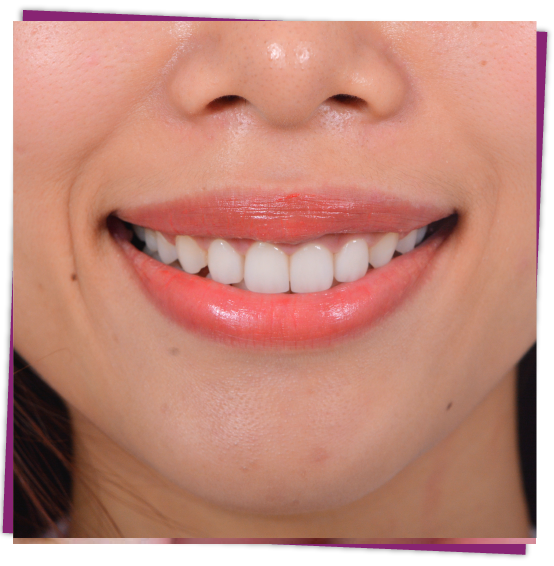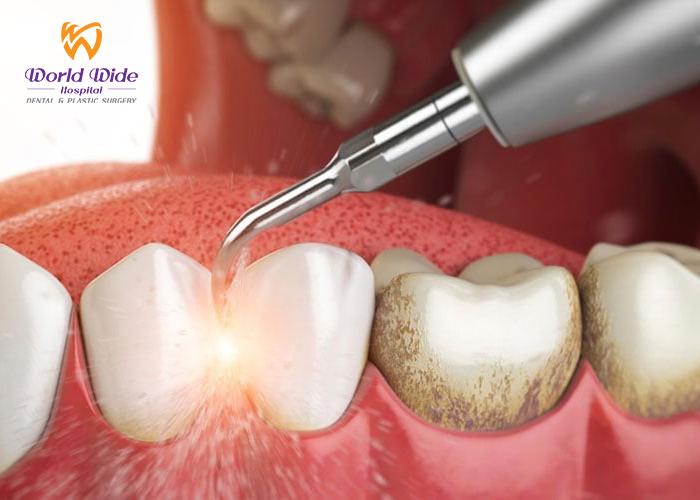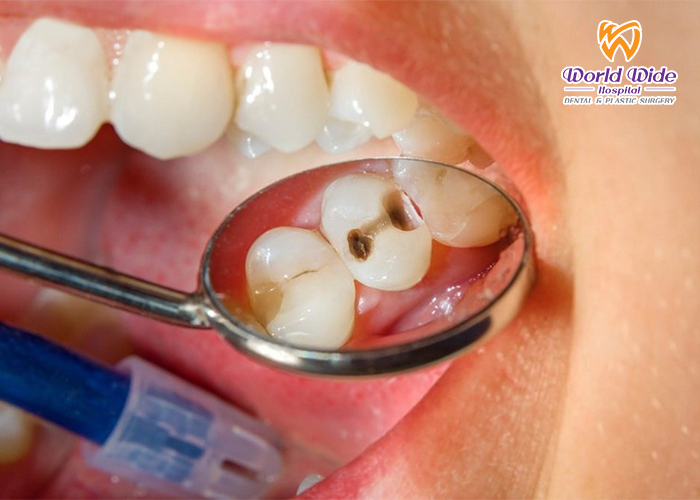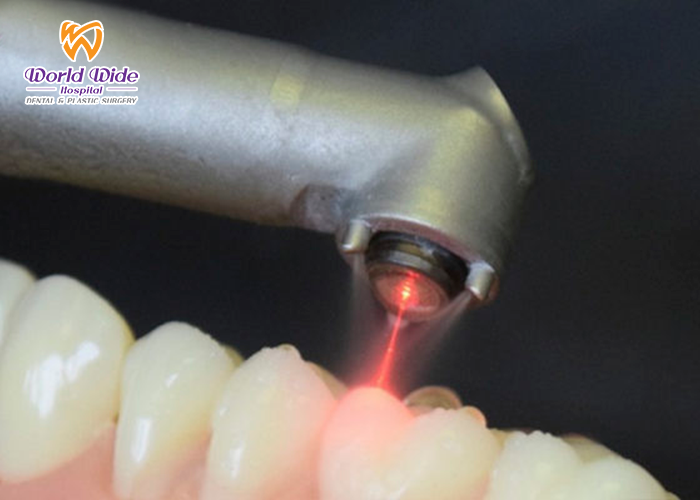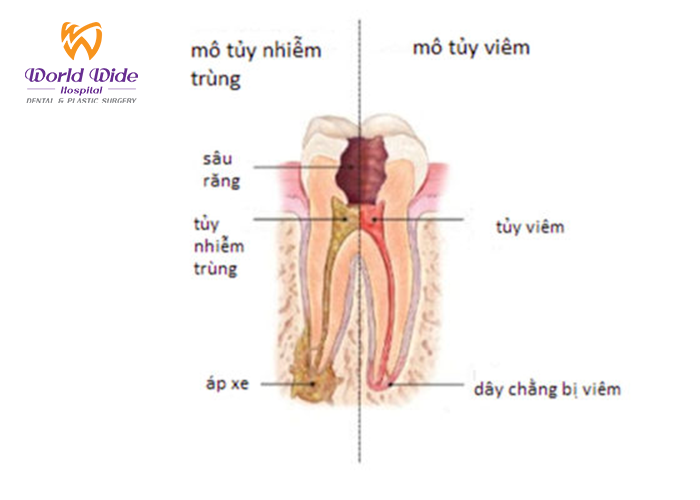CAUSES OF TOOTH DECAY
In the mouth, sugar or starch is converted into sugar and then fermented by bacteria to form acids that attack tooth enamel and dentin. The destruction occurs continuously without stopping without timely treatment intervention. It then causes loss of enamel and dentin, forming holes in the teeth that we often call cavities or decayed teeth. Signs of tooth decay can be a cavity, a black or sometimes milky white spot on the tooth.
Tooth decay can be divided into 3 levels:
- Enamel loss: when destruction occurs only in the enamel layer
- Shallow dentin caries: when the dentin enamel destroyed layer is less than 2mm
- Deep dentin caries: when the dentin enamel layer is destroyed by more than 2mm

 Tiếng Việt
Tiếng Việt




